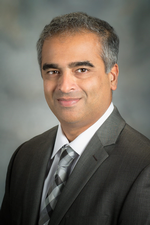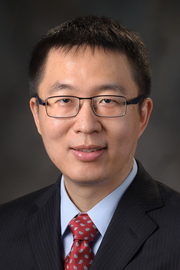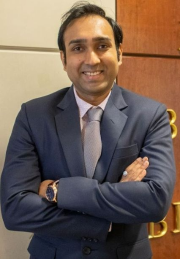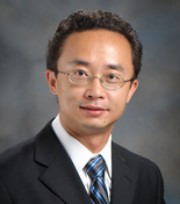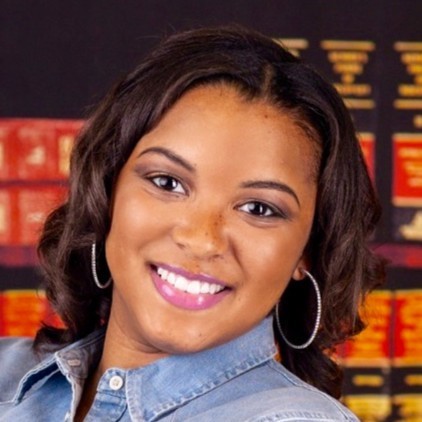I. Program Organization
A. Director
The Director of the Program will be elected by the Quantitative Sciences (QS) faculty in an election run by the GSBS in accordance with GSBS guidelines. The Director will serve a two-year term. The Director will oversee all administrative activities of the Program and bears final responsibility for Program leadership.
B. Co-Directors
Two Co-Directors will be elected by the Quantitative Sciences (QS) faculty in an election run by the GSBS in accordance with GSBS guidelines. The Co-Directors will serve a two-year term. The Co-Directors will assist with the administrative activities of the Director and conduct Program business (e.g., approving student forms) in the Director’s absence.
C. Steering Committee
The Steering Committee will be composed of the Director, the two Co-Directors, three QS faculty at-large and two QS students. The members will be chosen in elections run by the GSBS in accordance with GSBS election guidelines. The faculty at-large will serve a three-year term. The students will serve a one-year term and will be full voting members.
The duties of the Steering Committee are as follows:
- The Steering Committee will formulate policies related to the academic and administrative aspects of the Program and present them to the Program faculty for approval or modification.
- The Steering Committee will meet at least semi-annually and there will be a Program-wide faculty meeting semi-annually at which the Steering Committee will present its report and Program business will be conducted with minutes recorded for public dissemination.
- The Steering Committee will impanel subcommittees to advise on Program matters.
D. Election Process
To preserve the integrity and anonymity of the election process, the Graduate School will conduct the elections for Program Director, Co-Directors and Steering Committee Members. GSBS will solicit nominations, including self-nominations, from the Program faculty at-large. Once the slate of candidates has been approved by the Deans’ Office, GSBS will conduct the election and report the results of the election to the Program community.
GSBS will also conduct the election of the two student members of the Steering Committee. GSBS will solicit volunteers from Program students. To be eligible to serve, students must be in good academic standing, and it is recommended but not required that candidates have completed the candidacy exam. Once the slate of volunteers has been approved by the Program Director and the Deans’ Office, GSBS will conduct the election and report the results to the Program community.
II. Standing Committees
A. Student Application Review Committee
The committee will serve as the QS admissions committee. It will be composed of faculty volunteers who wish to serve. A minimum of five faculty will compose the admissions committee. The chair of this committee would ideally also serve on the GSBS Admissions Committee in order to facilitate the application review process. The committee will meet either in person or via web meeting as often as needed throughout the admission review process as deemed by the chair of the committee.
B. Curriculum Committee
The QS curriculum committee will be composed of a minimum of five QS faculty and two QS students. The committee will meet at least twice a year to review current classes and recommend any changes as needed.
C. Program Membership Committee
The QS membership committee will be composed of the director, co-directors, and two QS faculty at-large. The committee will meet at least once a year and recommend changes to the QS faculty membership as needed.
D. Exam Committee
Faculty will volunteer to serve on the qualifying exam committee and serve a minimum of two years to ensure standards across students’ exams.
E. Student Activity Committees
The student committees will be composed of the QS students and follow GSBS recommendations for program-based activities, which will include retreats, social activities, program-specific seminars, etc.
III. Faculty Membership
QS faculty members must be members of the GSBS. Membership categories will match those of GSBS: Regular, Associate and Distinguished Senior Lecturer as determined by the GSBS Membership Committee.
QS faculty are encouraged to actively participate in QS training activities, including but not limited to:
- Training and mentoring QS students.
- Serving on student committees as requested.
- Directing or teaching Program courses as requested.
- Attending thesis defenses of Program students, the annual retreat and Program seminars.
- Attending semi-annual faculty meeting.
Applications for membership in the QS Program are submitted to the Program Director. Applications should include the applicant’s CV and a letter stating the applicant’s reasons for requesting to join the Program. This letter should indicate what the applicant expects to gain from being a Program faculty and what the applicant can contribute to the Program. Applications are reviewed by the QS Membership Committee.
Faculty who apply for Program membership but are denied may appeal the decision to the GSBS Membership Committee, who will make a recommendation to the Deans.
The Program will notify GSBS Faculty Affairs of all new faculty members.
Review of Current Members
The QS Membership Committee will review participation by individual faculty members once every two years. The two-year review by the Program will be done on a schedule determined by the QS Membership Committee. The Program will review each member’s contributions or activities, using the GSBS membership criteria as a guideline. Faculty participation reports will be provided by GSBS but they should be augmented by reports/statements of Program-specific activities.
The Program will send GSBS Faculty Affairs a list of faculty they suggest are inactive. Inactive faculty will be notified that they are on probation for one year and encouraged to increase their participation. At the end of this time, if there is no increase in activity, the Program may terminate membership. Faculty who are asked to leave the Program may appeal the decision to the GSBS Membership Committee, who will make a recommendation to the Deans. Faculty determined to be disengaged are subject to not being reappointed as a GSBS faculty member.
The Program will notify GSBS Faculty Affairs of any terminated faculty members.
IV. Student Membership
GSBS students are eligible for membership in the QS Program. Students should submit a request to the Program Director for admission to the Program.
V. Faculty Meetings
The QS faculty will meet at least twice a year, at which the Steering Committee will present its report and Program business will be conducted. Minutes will be recorded for public dissemination. Changes in the Program Bylaws recommended by the Steering Committee and other matters will be approved by a majority vote.
VI. Student Meetings
The Director and Co-Directors will have a meeting with all students at least twice a year.
VII. Amendments to Bylaws
An amendment to the Bylaws of the QS Program may be accomplished by a majority vote of the Program faculty after the following procedure has been followed. The proposed amendment will be submitted to the Program Director who will send it to the GSBS Deans Office for review to ensure that it meets GSBS guidelines. The Program Director will then send the amendment electronically to the Program Faculty for consideration at least two weeks before a vote is to be taken. If the amendment is to be discussed at a faculty meeting, a final vote may be taken at the meeting. If the amendment is to be approved electronically, GSBS will send the final version of the amendment to the Program Faculty to approve by electronic ballot.













